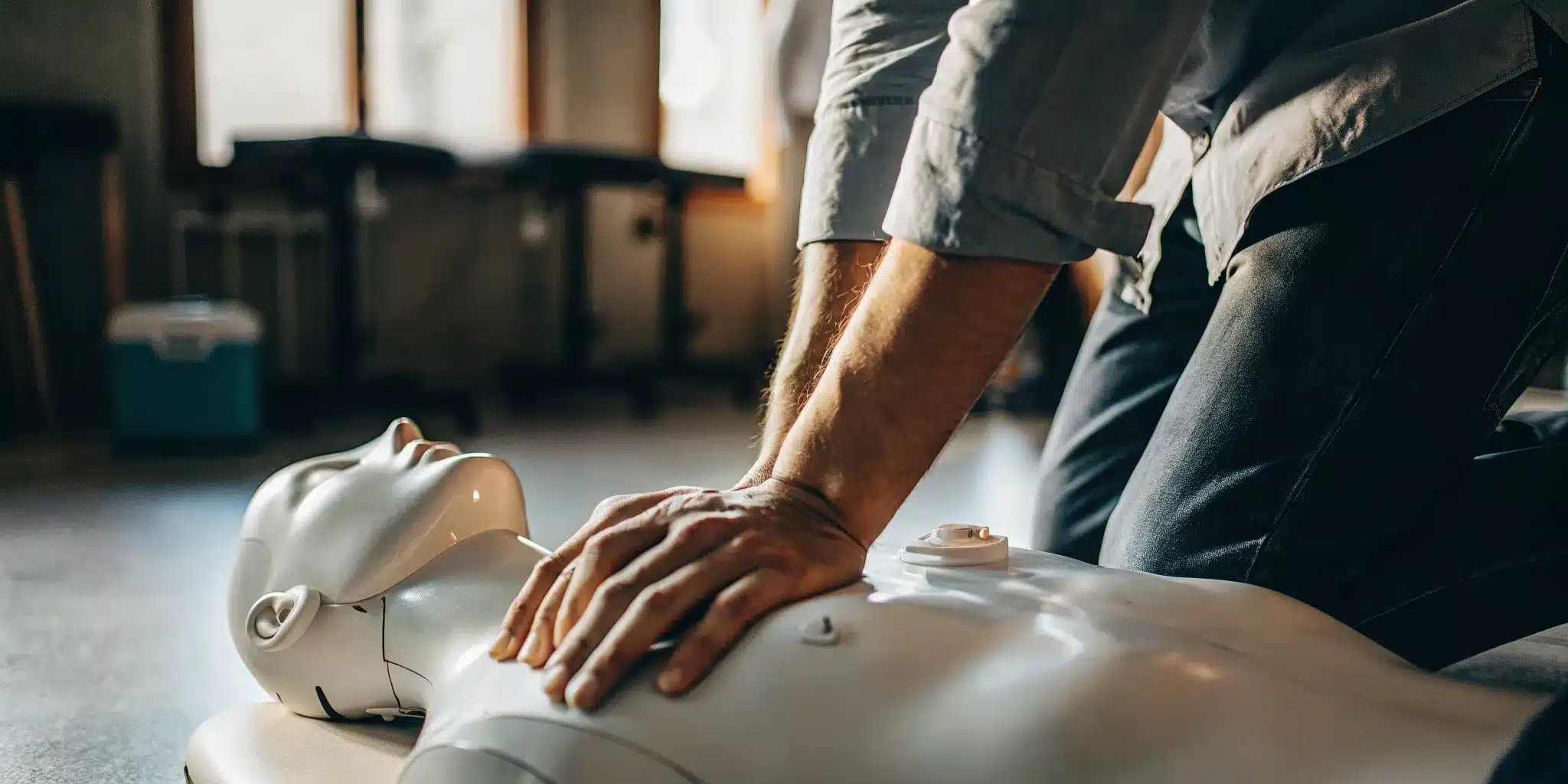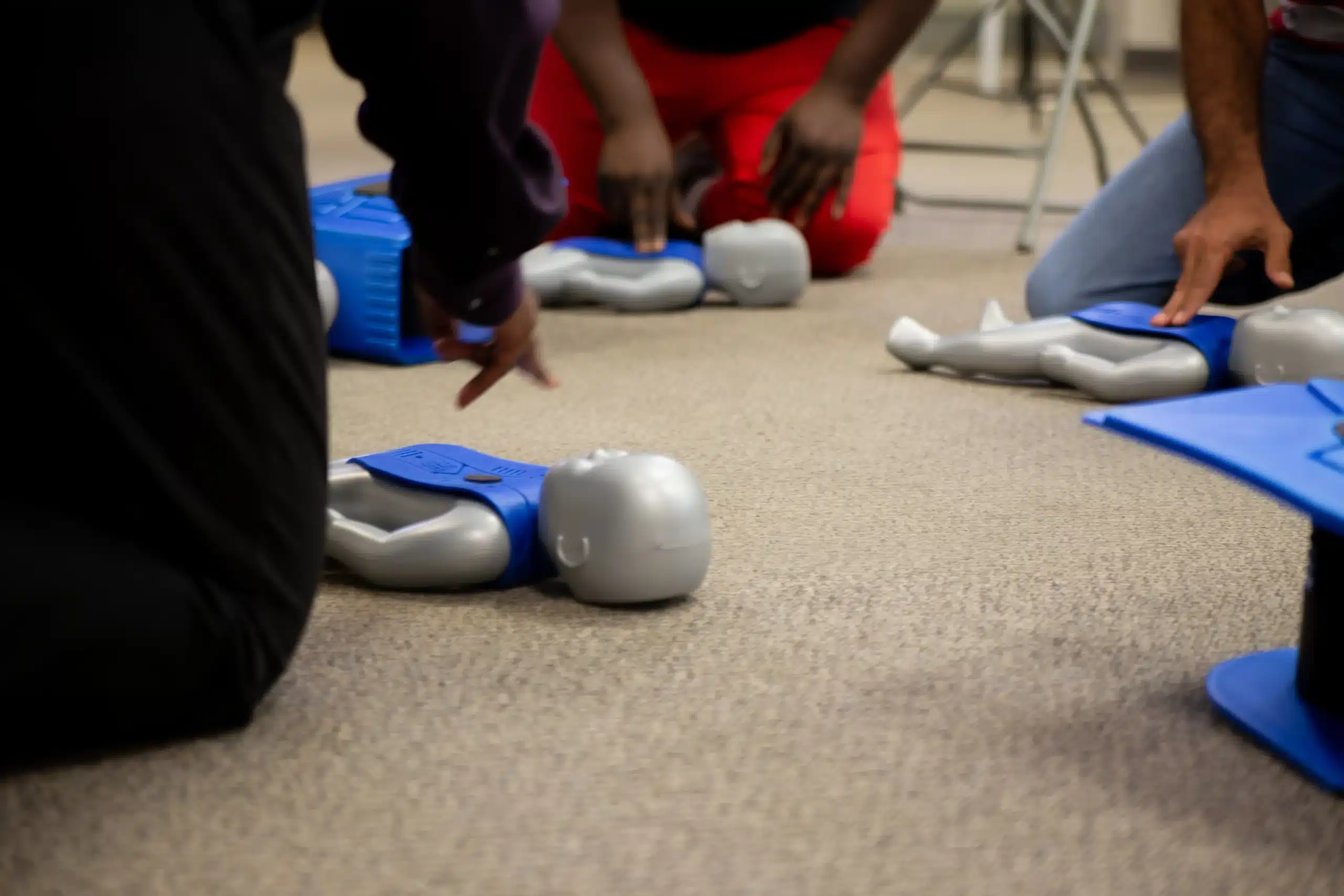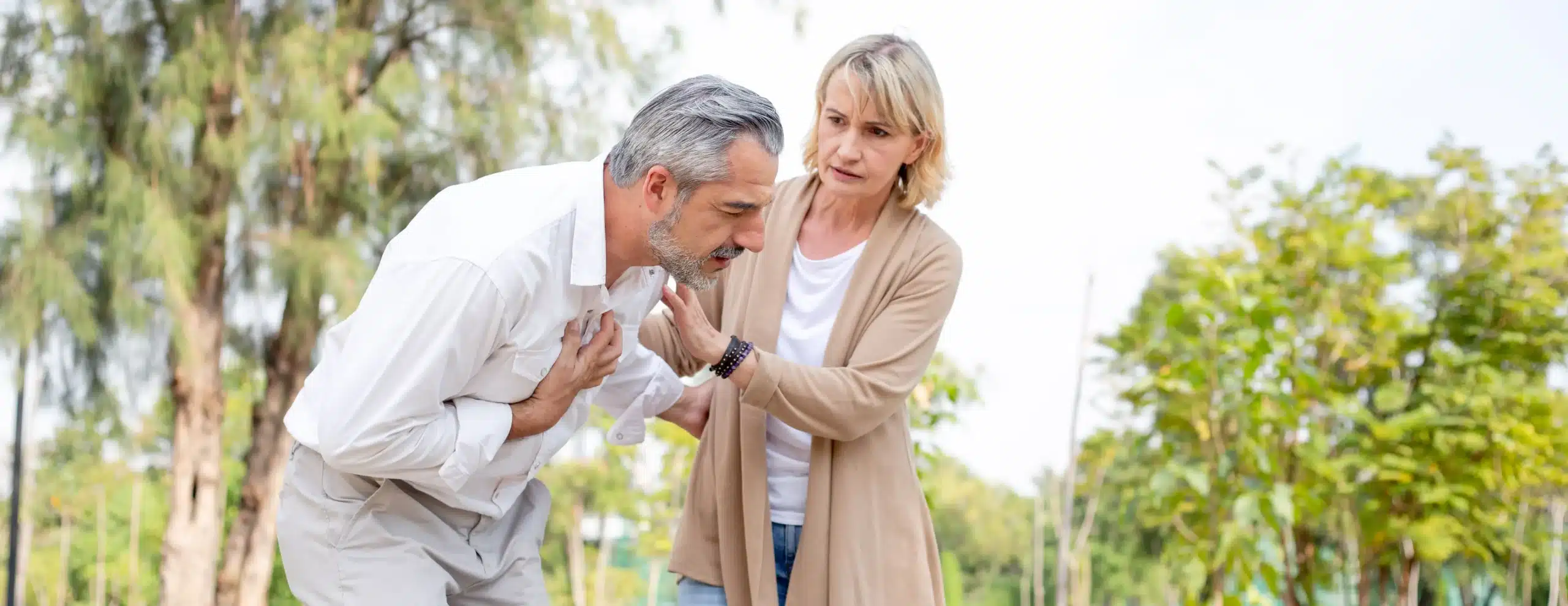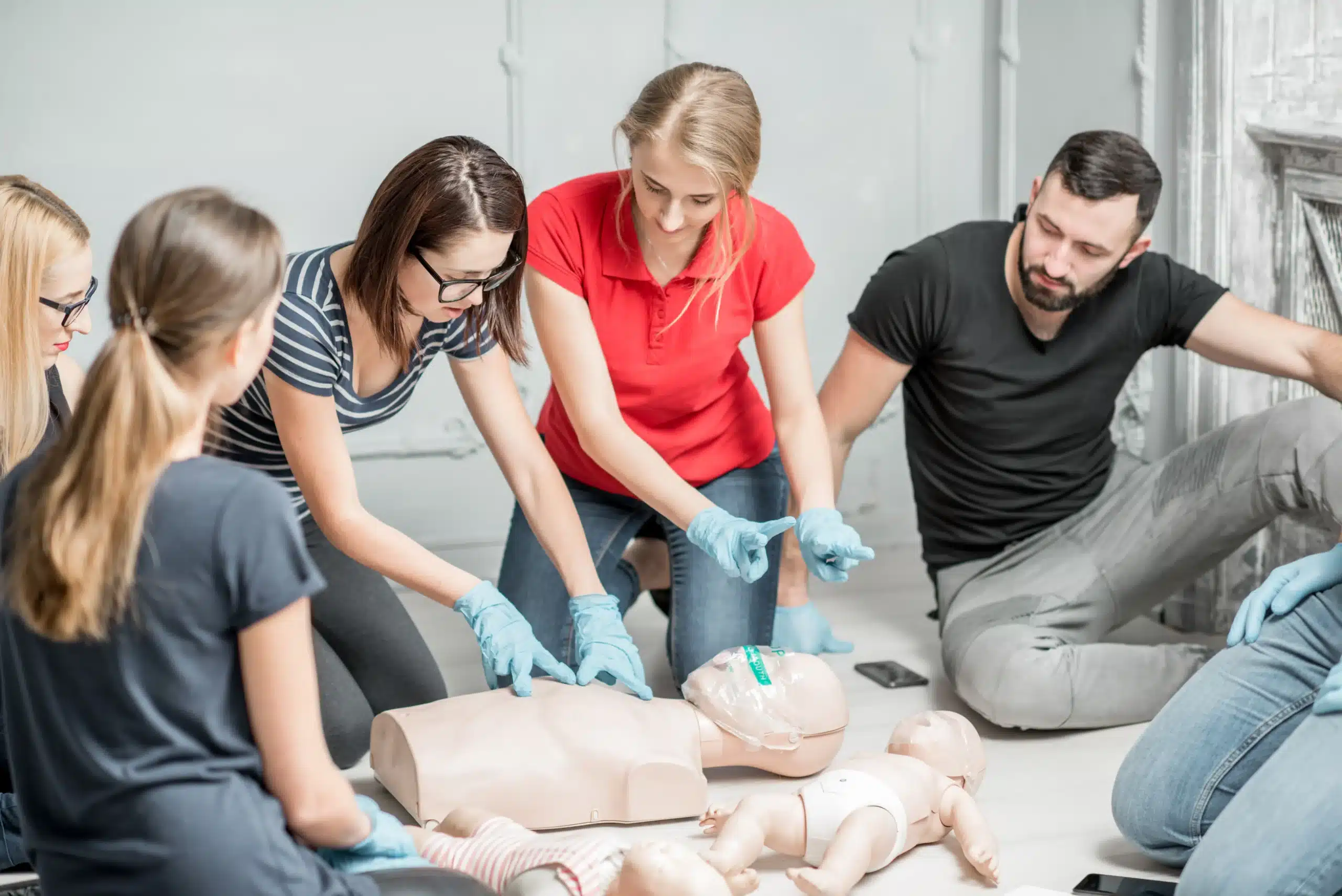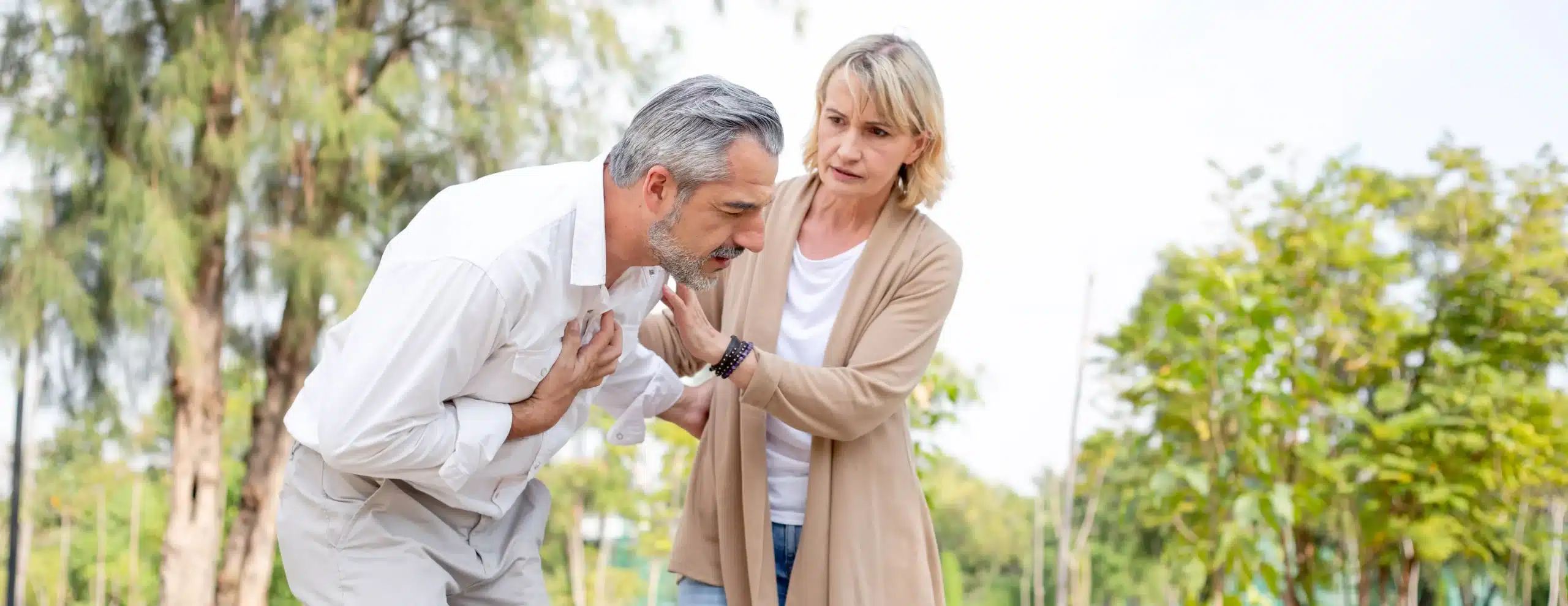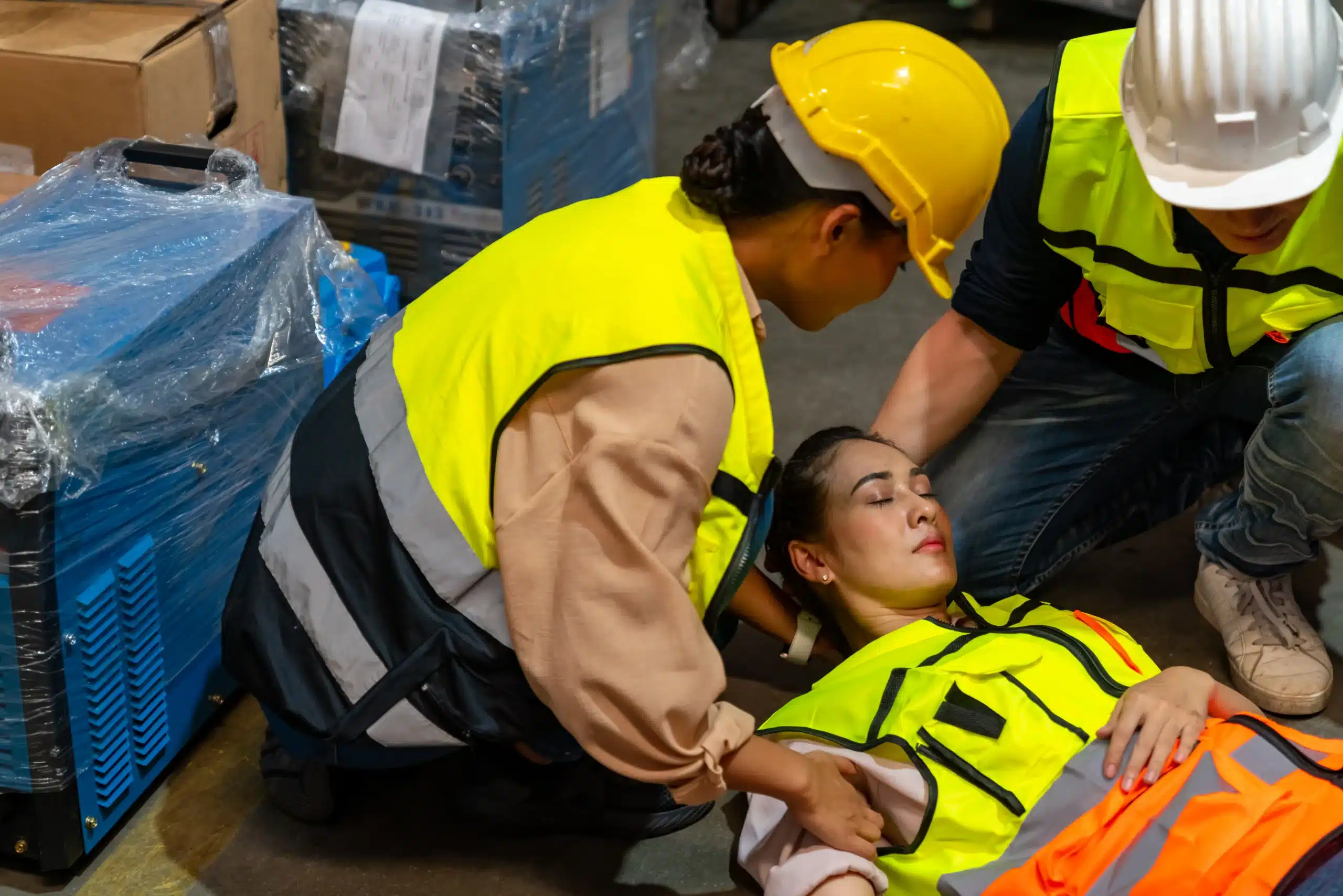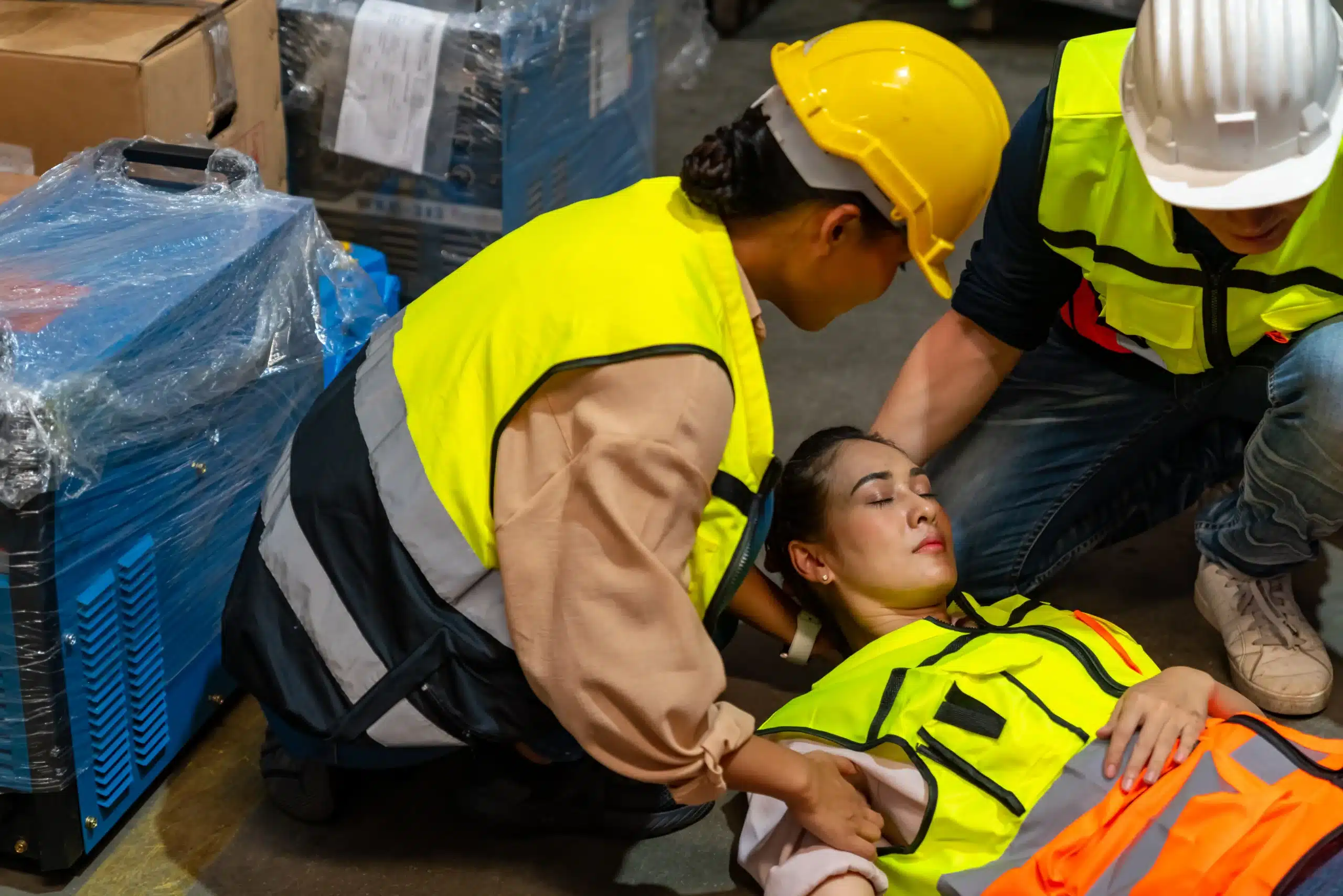Empowering yourself with life-saving skills starts with CPR training. This comprehensive guide explores the world of CPR classes in Berkeley, offering insights into the different types of training available, the certification process, and how to choose the right class for your needs. Whether you’re a healthcare professional seeking advanced certification or a concerned citizen wanting to learn the basics, we’ll cover everything you need to know. We’ll also highlight reputable providers like Berkeley CPR Classes and discuss the importance of ongoing training and education.
Key Takeaways
- CPR Certification Can Save Lives: Equipping yourself with CPR training gives you the confidence to act quickly during emergencies, potentially making a real difference in someone’s life. Explore the various CPR class options in Berkeley to find the best fit for you.
- Choose the Right CPR Class for Your Needs: Whether you’re a healthcare professional, childcare provider, or simply want to be prepared, Berkeley offers a range of CPR classes, from basic to advanced certifications. Consider your specific requirements when selecting a course.
- Stay Current with Your CPR Skills: Maintaining your CPR certification is essential for providing effective assistance. Remember that certifications typically expire, so plan to renew your training regularly and stay informed about the latest guidelines.
What is CPR and Why is it Important in Berkeley?
CPR, or Cardiopulmonary Resuscitation, is a life-saving technique used when someone’s heart stops beating. It combines chest compressions and rescue breaths to maintain blood flow and oxygen to the brain and other vital organs. Learning CPR can significantly increase a person’s chance of survival until professional medical help arrives. In fact, the American Heart Association says that immediate CPR can double or even triple a victim’s survival rate.
CPR training is especially important in Berkeley, given the prevalence of cardiac arrest nationwide. Hundreds of thousands of cases occur in the US each year, highlighting the need for more people trained to respond effectively. By learning CPR, you gain the skills to act quickly and confidently during these critical events, potentially saving a life within your community. The availability of CPR and first-aid training in Berkeley reflects the city’s commitment to public health and safety. Taking a CPR class equips you to make a real difference, providing immediate support to those in need.
CPR Classes in Berkeley: What are Your Options?
Finding the right CPR class can feel overwhelming, but understanding the different types of training available helps you make an informed decision. Whether you’re a healthcare professional, a childcare provider, or simply someone who wants to be prepared for emergencies, Berkeley offers a CPR class to suit your needs. Let’s explore some of the most common options.
Basic Life Support (BLS)
BLS certification provides the foundational knowledge and skills to respond to life-threatening emergencies, including CPR for adults, children, and infants. You’ll also learn how to use an AED and practice essential techniques for relieving choking. BLS certification is a prerequisite for many healthcare professions and is valuable for anyone who wants to be prepared to help in a crisis. Berkeley CPR Classes offers BLS courses designed to give you the confidence to act quickly and effectively.
Advanced Cardiovascular Life Support (ACLS)
ACLS training builds upon the fundamentals of BLS, focusing on advanced techniques for managing cardiovascular emergencies and other respiratory emergencies. This course is designed for healthcare professionals, including physicians, nurses, paramedics, and respiratory therapists. ACLS certification demonstrates a higher level of proficiency in emergency care and is often required for specific roles and responsibilities within the medical field.
Pediatric Advanced Life Support (PALS)
PALS certification equips healthcare providers with the specialized knowledge and skills needed to respond to emergencies involving infants and children. This course covers a range of pediatric-specific topics, from respiratory distress and shock to cardiac arrest and post-resuscitation care. If you work in pediatrics, PALS certification is essential for providing the highest quality of care.
First Aid and CPR
Combining first aid and CPR training provides a well-rounded approach to emergency preparedness. You’ll learn how to respond to common injuries like cuts, burns, and fractures, as well as how to perform CPR. This comprehensive training is beneficial for anyone, from parents and teachers to community members and workplace responders. It empowers you to handle a wider range of emergency situations and provide immediate assistance until professional help arrives.
Compare CPR Class Providers in Berkeley
Finding the right CPR class in Berkeley depends on your specific needs and preferences. Let’s look at some of the leading providers in the area.
Berkeley CPR Classes
Berkeley CPR Classes offers a wide range of American Heart Association (AHA) certified courses, covering everything from basic CPR and First Aid to advanced certifications like BLS, ACLS, and PALS. They pride themselves on customer service, offer a low price guarantee, and provide discounts for group classes. Their convenient Berkeley location serves Alameda, Oakland, and Berkeley. Learn more about their BLS certification or explore their group discounts.
American Red Cross
The American Red Cross is a nationally recognized organization providing CPR/AED training. They offer various learning formats, including in-person, online, and blended learning options. Their in-person classes in Berkeley meet OSHA requirements and provide a two-year certification. Find a CPR class near you.
UC Berkeley Recreation and Wellness
For those connected to the university, UC Berkeley Recreation and Wellness offers CPR and first aid classes. These courses are a convenient option for students, faculty, and staff. Explore their health and safety courses for more details.
Local Hospitals and Medical Centers
Many hospitals and medical centers in Berkeley also offer CPR and first-aid training. These classes are often geared towards healthcare providers but may also be open to the public. Contact local hospitals directly to inquire about their courses, or explore options through organizations like Bay Area CPR.
What Happens in a Berkeley CPR Class?
Curious about what your CPR training will involve? CPR classes in Berkeley blend classroom instruction with hands-on practice to equip you for real-life emergencies. Here’s a glimpse into a typical class:
Class Duration and Format
CPR classes in Berkeley typically run between two and four hours, depending on the course content and format. The American Red Cross offers a variety of CPR class formats to suit different schedules and preferences. Expect a mix of instructor-led discussions, demonstrations, and interactive exercises.
Hands-on Practice
Hands-on practice is a central element of effective CPR training. Berkeley CPR Classes prioritizes practical training, providing ample opportunities to practice essential skills like chest compressions, rescue breaths, and AED use on mannequins. This hands-on approach helps build muscle memory and confidence so you can respond effectively under pressure.
Certification Process
After successfully completing your CPR class, you’ll receive an official American Heart Association (AHA) certification card. This nationally recognized certification is generally valid for two years, demonstrating that you’ve met the AHA’s standards for CPR and first aid knowledge and skills.
AHA Certification
The American Heart Association sets the standard for CPR training and certification. Choosing an AHA-certified CPR course ensures you’re learning the most current, evidence-based techniques. This standardization is essential for delivering consistent, high-quality CPR care nationwide.
Instructor Qualifications and Teaching Methods
Knowing you’re learning from qualified instructors gives you confidence in your CPR training. At Berkeley CPR Classes, we prioritize providing high-quality instruction, so you feel prepared to respond to emergencies. Here’s what sets our instructors apart:
American Heart Association Certification
Our instructors hold certifications from the American Heart Association (AHA), the leading authority on CPR and emergency cardiovascular care. This means they’ve met rigorous standards and demonstrated expertise in delivering effective CPR training. This commitment to AHA guidelines ensures you receive training aligned with the latest science-backed practices.
Experience and Ongoing Education
We believe ongoing training is crucial for instructors. Our instructors maintain their AHA Instructor status by teaching regularly and participating in continuing education programs. This keeps them up-to-date on the latest life-saving techniques and best practices to share with you. They also continually refine their teaching skills to create an engaging and effective learning environment.
Specialized Expertise
Beyond core CPR skills, our instructors often have specialized expertise in areas like Basic Life Support (BLS), Advanced Cardiovascular Life Support (ACLS), and Pediatric Advanced Life Support (PALS). This specialized knowledge allows them to tailor instruction to the specific needs of various groups, including healthcare providers, childcare professionals, and the general public. They also stay informed on the latest updates to CPR guidelines and techniques, ensuring your training remains relevant and accurate.
CPR Training: Price and Value
Finding the right CPR class often involves balancing quality instruction with cost. Let’s break down how to evaluate price and value when choosing your CPR training in Berkeley.
Compare Costs
CPR training costs in Berkeley vary depending on the provider and the type of certification. It’s wise to compare prices from different organizations. Berkeley CPR Classes offers a range of AHA-certified courses, from basic CPR to advanced certifications like BLS, ACLS, and PALS. Understanding the price range for these courses will help you budget effectively.
Group Discounts and Special Offers
If you’re coordinating training for a group, such as workplace colleagues or a community organization, explore group discounts. Berkeley CPR Classes offers reduced rates for group bookings, making training more affordable, especially for larger groups. Contact providers directly to discuss group pricing and tailor a package to your needs.
Price Matching
Look for CPR training providers who offer a low-price guarantee or are willing to match competitor pricing. Berkeley CPR Classes emphasizes its commitment to affordability and price matching, giving you confidence that you’re receiving competitive pricing without sacrificing quality instruction.
Flexible CPR Training for Busy Professionals
Juggling work, family, and other commitments can make it tough to fit in essential training like CPR. Luckily, Berkeley CPR Classes offers several flexible options designed to accommodate busy professionals in Alameda, Oakland, and Berkeley. We understand that your time is valuable, so we’ve made it easier than ever to get certified.
In-Person Classes
Our in-person classes provide hands-on training and direct interaction with experienced instructors. Held at our Berkeley location, these classes offer extended daily hours from 8 am to 10 pm. This flexibility allows you to choose a time that works best with your schedule, whether it’s early morning, evening, or even a weekend slot. We believe that convenient scheduling shouldn’t be a barrier to acquiring this life-saving skill.
Online and Blended Learning
For those who prefer a more independent approach or need greater flexibility, we offer online and blended learning CPR classes. Online learning allows you to study the material at your own pace, from anywhere with an internet connection. Blended learning combines the convenience of online learning with the practical experience of in-person skills sessions. This hybrid approach ensures you receive comprehensive training while accommodating your busy lifestyle.
RQI Program
Looking for the fastest route to certification? Our RQI (Resuscitation Quality Improvement) program is designed for efficiency. This program combines online learning with a hands-on skills test using a voice-assisted mannequin. The best part? You receive your certification card the same day you complete the program. This streamlined process is perfect for professionals who need to get certified quickly and efficiently.
Choose the Right CPR Class
Knowing which CPR class is right for you depends on your background and goals. Whether you’re a healthcare provider, work with children, or simply want to be prepared for emergencies, there’s a CPR class in Berkeley designed to meet your specific needs. Let’s break down the options:
Healthcare Professionals
If you’re a doctor, nurse, EMT, or other healthcare professional, the Basic Life Support (BLS) course is essential. BLS certification goes beyond the basics of CPR to include critical skills like using a bag valve mask and working as a team during a cardiac arrest. These skills are crucial for responding effectively in medical emergencies. BLS classes often cover topics like airway management and recognizing the early signs of a heart attack or stroke. Berkeley CPR Classes offers American Heart Association-certified BLS courses designed specifically for healthcare providers.
Childcare Providers
For those working in childcare, a specialized CPR and first-aid certification is a must. You’ll want training that focuses on infant and child CPR, choking hazards, and common childhood injuries. In addition to standard CPR and first aid, childcare providers in Berkeley might consider the Neonatal Resuscitation Program (NRP), which provides advanced training for newborns requiring respiratory support. These specialized courses equip childcare providers with the skills to confidently respond to emergencies involving young children. Check with your licensing agency to see what certifications are required.
General Public and Families
Learning CPR can empower anyone to save a life. If you’re a member of the general public or want to prepare your family for emergencies, a basic CPR and first-aid class is a great place to start. These courses teach the fundamentals of CPR, how to recognize a cardiac arrest, and how to provide basic first aid for common injuries like cuts and burns. Berkeley CPR Classes offers a variety of options for individuals and families, including discount group classes that make learning these life-saving skills accessible and affordable. Knowing CPR can give you the confidence to act quickly and effectively in an emergency, potentially making all the difference.
Maintain Your CPR Certification
Keeping your CPR skills sharp is essential for providing effective assistance in emergencies. This section covers how to maintain your CPR certification and why continued learning matters.
Renewal Requirements
CPR certifications, especially those from the American Heart Association (AHA), don’t last forever. They typically require renewal every two years. This ensures instructors stay up-to-date on the latest life-saving techniques. A key requirement for maintaining your AHA Instructor status is teaching a minimum of four classes every two years. This practical experience reinforces your knowledge and keeps your skills current. For those certified through Berkeley CPR Classes, we offer various resources and opportunities to meet these renewal requirements.
Continuing Education
Beyond meeting the minimum requirements for renewal, continuing education is crucial for any CPR instructor. The field of emergency medical care is constantly evolving, with new research and guidelines emerging regularly. Engaging in continuing education keeps you informed about the latest CPR techniques and AHA guidelines. This not only strengthens your own skills but also ensures you’re providing your students with the most current and effective training. Resources like the National CPR Center offer valuable insights and updates for CPR instructors. Staying informed about these changes is a core part of being a responsible and effective CPR instructor. Remember, the goal is to be prepared and confident in your ability to provide life-saving assistance when it matters most.
Debunking CPR Class Myths
It’s easy to put off learning CPR. Maybe you’re worried it will be too difficult or time-consuming, or perhaps you’re unsure if your help would even make a difference. Let’s clear up some common misconceptions about CPR training.
Is CPR Hard to Learn?
One reason people avoid CPR training is the worry that it’s too complicated. This just isn’t true! Modern CPR training emphasizes simplicity and accessibility. Berkeley CPR Classes offers streamlined courses designed to make learning easy and manageable, even for complete beginners. You’ll master the essential skills quickly.
Is CPR Safe?
Another myth is that you might accidentally cause harm while performing CPR. While it’s natural to have concerns, remember that doing nothing is far more dangerous for someone experiencing cardiac arrest. CPR techniques are designed to minimize risk and maximize the chances of survival. Our instructors at Berkeley CPR Classes prioritize safety and provide thorough training to build your confidence. CPR classes cover what to do and what not to do, empowering you to act quickly and safely.
Who Can Perform CPR?
Many believe CPR is only for medical professionals. This is absolutely false. Anyone can and should learn CPR. It’s a life skill that empowers you to help family, friends, or even strangers in a critical situation. CPR training equips you with the knowledge and skills to respond effectively in an emergency, regardless of your background. Taking a CPR class opens the door for anyone to become a potential lifesaver.
Is Mouth-to-Mouth Required?
Finally, some hesitate to learn CPR because they’re uncomfortable with the idea of mouth-to-mouth resuscitation. The good news is that current American Heart Association guidelines prioritize chest compressions. While rescue breaths are still part of some training programs, compression-only CPR is often sufficient and highly effective. Our CPR instructors will guide you through the latest recommendations and ensure you’re prepared for any scenario. Learn more about our CPR class options.
Related Articles
- Why CPR is Important in Healthcare – Berkeley CPR Classes
- BLS CPR Classes in Berkeley, CA – Berkeley CPR Classes
- CPR Classes in Berkeley, CA
- CPR & First-aid Classes in Berkeley, CA – Berkeley CPR Classes
- CPR Myths You Need to Stop Believing – Berkeley CPR Classes
Frequently Asked Questions
What’s the difference between BLS and CPR? CPR is the core life-saving technique within BLS. BLS (Basic Life Support) encompasses a broader range of skills, including CPR, using an AED, and relieving choking. Think of CPR as one vital tool within the BLS toolkit. BLS certification is often required for healthcare providers and other professionals.
How do I choose the right CPR class in Berkeley? Consider your specific needs and goals. Healthcare professionals often require BLS or ACLS certification. If you work with children, look for a class specializing in pediatric CPR and first aid. For the general public, a basic CPR and first-aid course is a great starting point. Think about factors like class schedules, location, and cost when making your decision.
How long does a CPR certification last, and how do I renew it? Most CPR certifications are valid for two years. Renewal typically involves taking another CPR class to refresh your skills and knowledge and ensure you’re up-to-date on the latest guidelines. Check with your certifying organization, such as the American Heart Association, for specific renewal requirements.
What if I’m nervous about performing CPR in a real emergency? It’s natural to feel apprehensive, but remember that any attempt at CPR is better than none. High-quality CPR training emphasizes hands-on practice, building your confidence and muscle memory. Focus on the core skills you’ve learned, and don’t hesitate to act – you could save a life.
Why should I learn CPR if I’m not a healthcare professional? CPR is a valuable life skill for everyone. Emergencies can happen anytime, anywhere, and knowing CPR empowers you to help family, friends, coworkers, or even strangers. You never know when you might be the one who can make a difference.
This article was written for free by MEGA SEO.


